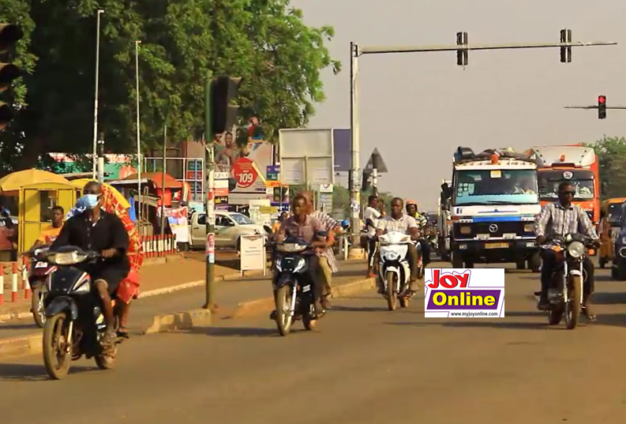Poverty continues to ensnare Northern Ghana as 941,706 residents remained impoverished between 2014 and 2019, despite reduction in national poverty rate, a study has found.
The national poverty rate reduced from 51. 1 per cent in 1992 to 20.5 per cent in 2019, nonetheless, people in the previous three administrative regions were found to have difficulty in breaking out of poverty.
The regions are Northern (now split into Northern, Savannah and North East), Upper East and Upper West.
The researchers recommended to government to implement pro-poor policies specifically targeted at the poor in the northern part of Ghana.
The researchers are Professor Bernardin Senadza, Associate Professor, Department of Economics, University of Ghana, Dr Dede Gafa, Lecturer, African School of Economics, Benin Campus, and Mr Louis Hodey, Researcher, Institute of Development Studies, University of Sussex, United Kingdom.
Titled: “Escaped or trapped? The untold story of Ghana’s poverty reduction,” the study noted that chronic poverty was associated with male household headship, rural dwellers, and residence in the named regions.
The people trapped in poverty had their parents or themselves spending majority of their lives working in the agriculture sector, often do not have beyond primary education, and were deprived of basic human needs, including food, safe drinking water, health, sanitation facilities, and shelter.
In an interview with the Ghana News Agency, Mr Hodey, one of the researchers, said: “For a lot of people in Northern Ghana, we see that the poverty levels are rather increasing whilst the national level is experiencing a reduction.”
“What it means is that we are not doing much for deprived people. We are not targeting them - we are not looking at their circumstances and offering them the very things that will help them escape poverty,” he said.
He urged the Government to ensure that social protection programmes, including the Livelihood Empowerment Against Poverty (LEAP), Free Senior High School (Free SHS), and capitation grant were stepped up and well-targeted at the Northern, Upper East and Upper West regions.
“Government policies should target poverty reduction among those who are really poor, trapped in poverty, likely to be trapped, and those who are likely to fall into poverty, and help them to exit,” Mr Hodey said.
Prof Senadza, another researcher, recommended that the Government should work with non-state institutions to promote economic growth, which the study found to account largely for reduction in poverty and inequalities.
“A disaggregation of data on the North and the South made it clear that there was a higher probability of remaining in poverty if you found yourself in the North than the Southern part and falling back into poverty if you were initially not poor in the North compared to the South,” he said.
The research covered 2006 to 2019 using data from Ghana Living Standard Surveys (GLSS) and the Economic Growth Centre (EGC)-Institute of Statistical, Social and Economic Research (ISSER) Ghana Socioeconomic Panel Surveys.
Meanwhile, Mr Ken Ofori-Atta, the Finance Minister, during the presentation of the mid-year budget review on July 31, indicated that the Government remained committed to sustaining social protection programmes to protect the poor and the vulnerable.
He said under LEAP, a total of GHS169.95 million had been disbursed to some 346,019 households, comprising 1,533,748 individuals, as of June 2023.
The coverage of the Ghana School Feeding programme also increased from 1,671,777 beneficiaries in 2016 to 3,801,491 beneficiaries by June 2023, with the feeding grants cost per meal, per child, per day increasing from GHS1.00 to GHS1.20 for the 2023 academic year.
Mr Ofori-Atta said the Capitation Grant contributed to increased enrolment in public basic schools from 6,048,897 pupils for the 2021/2022 academic year to 6,114,302 pupils for the 2022/2023 academic year.
He said the Free SHS/Technical and Vocational Education and Training (Free TVET) programmes, enrolled a total of 447,396 first-year students during the 2022/2023 academic year, increasing beneficiaries to 1,318,035.
Latest Stories
-
Parliament amends Growth and Sustainability Levy, raises gold mining tax to 3%
1 hour -
GPHA, GRA to ensure efficient cargo clearance, trade facilitation
1 hour -
Parliament approves ¢4bn budget for Local Government Ministry
1 hour -
Ghana selects US, China as vendors for first nuclear plants
2 hours -
International development partners engage Northern Ghana for strategic collaboration
2 hours -
Defence Minister donates food Items to GAF; hopeful it’ll boost morale of the troops
2 hours -
Bar owners arrested over assaults on 41 women in Belgium
2 hours -
Starmer accuses Putin of ‘playing games’ over Ukraine peace deal
3 hours -
Trump targets ‘anti-American ideology’ at Smithsonian museums
3 hours -
2Baba goes shopping again with new lover Natasha Osawaru
3 hours -
Macron urges Algeria to free writer jailed for Morocco comments
3 hours -
Real Madrid quartet probed for alleged indecent conduct
3 hours -
Premier League to have two summer transfer windows due to Club World Cup
4 hours -
Barcelona beat Osasuna in rearranged La Liga game
4 hours -
Djokovic into last four with ‘great’ win over Korda
4 hours

